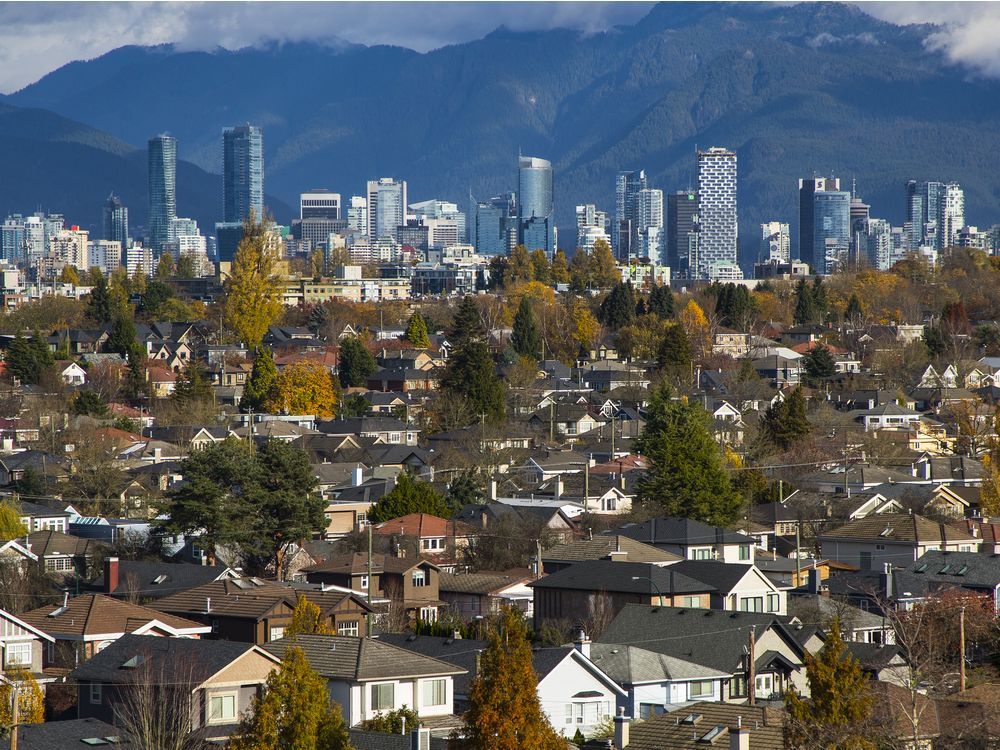Dan Fumano: Why falling property assessments won't mean lower property taxes

Credit to Author: Dan Fumano| Date: Fri, 03 Jan 2020 23:21:18 +0000
Every year, whether land values are going up or down, experts working in the field say the same confusion persists about the relationship between property assessments and taxes.
And this year, the confusion may be particularly widespread. That’s because while last year’s assessments saw declines in the upper end of Vancouver’s housing market, 2020 marks only the fifth time since B.C. Assessment’s inception in 1974 — and the first time in 20 years — that the province’s assessed values saw an overall decline. (B.C.’s overall assessment values also decreased in 2000, 1999, 1987 and 1983).
“We try to explain this every year, and I think this year, it might end up being more of an issue,” said B.C. Assessment spokeswoman Tina Ireland. “Because I think what’s going to happen, especially in the Lower Mainland, is a lot of property owners are going to get their assessment notice and they’re going to say: ‘Oh, my assessment went down 10 per cent, that’s great, my property taxes are going to go down 10 per cent.’ And that is not the case.”
The reason property taxes won’t necessarily decline in step with assessments is because regardless of what’s happening with local real estate values, every municipality still needs to raise enough revenue to fund its operations.
For Vancouver, this year’s $1.6 billion operating budget was approved last month by council, and property taxes are, by far, the single largest revenue source for the city. (About half of your property tax bill goes to the city, while the rest funds regional and provincial services).
Vancouver’s 2020 budget included a property tax increase of seven per cent, which represents a reduction from the 8.2 per cent increase originally presented in the draft budget, but still more than double the average annual increase over the last 10 years.
So even if your assessment has dropped by hundreds-of-thousands of dollars from last year, what matters is how it changed relative to other properties in your municipality. As a point of reference, a typical detached house in Vancouver saw an 11 per cent decrease this year while a typical condo fell by seven per cent.
If your home’s value decreases more than most other properties in your jurisdiction, you might be able to expect less of a property tax hike. But if your property held its value more than others, you might be able to expect an even larger tax increase, relatively speaking, this year.
And with multimillion-dollar Vancouver mansions dropping in value more quickly than other properties, that means the city’s more affordable condos should expect a relatively larger tax increase this year, said Paul Sullivan, managing partner at property tax consulting firm Burgess, Cawley, Sullivan and Associates.
“What’s going on is a shift in the tax burden to the lower-end properties,” Sullivan said.
In April, Vancouver’s council will set the final tax increase for the year, and approve the tax distribution between residential and business properties.
In April 2019 council approved a “tax shift” from business properties to residential, of one per cent for 2019 and 0.5 per cent in 2020 and 2021. The stated purpose at the time was to provide relief to Vancouver’s independent businesses struggling with soaring property taxes. But that will also mean higher tax increases for residential properties: instead of a seven per cent hike this year, the city estimates residential property taxes will rise about eight per cent while business property taxes increase six per cent.
Some online commentary this week has predicted that falling values will mean homeowners who bought in recent years could struggle to renew their mortgages. But representatives of both mortgage lenders and brokers said that in most cases renewal shouldn’t be an issue, even if your property value has declined since you bought it.
“Generally speaking, when renewing a mortgage with the same lender, so long as the borrower’s credit standing has not substantially deteriorated, requalification isn’t required,” said Canadian Bankers Association spokesman Aaron Boles. “Therefore, if you’re staying with your current lender, this is typically a non-issue and renewing is straightforward for the more than 99 per cent of Canadian homeowners whose mortgage is in good standing.”
As a matter of practice, as long as mortgage payments are being made on time, the lender typically won’t undertake a new property valuation at renewal, said Samantha Gale, CEO of the Canadian Mortgage Brokers Association B.C. Declining property values could, however, impact those looking to refinance their mortgage, either to access additional funds or switch lenders, she said.
But, Dustan Woodhouse, president of national brokerage Mortgage Architects, said: “If your renewal is coming up and your property has fallen in value by 10 per cent or 20 per cent, it doesn’t mean anything. Nobody’s getting kicked out of their house because the value went down.”
So Vancouverites should be able to remain in their homes, professionals predict, as long as they can keep up with their expensive property taxes, and their expensive mortgages.